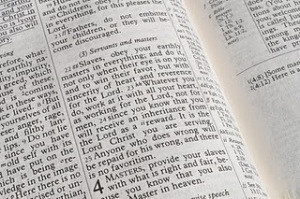
Yesterday, Sandra gave us a better understanding of how the Church got started during the feast of Pentecost. Fasten your seatbelt today, because we are going to take a turbo-speed overview of the early history of God’s work in and through the local church through the books of Acts and the epistles!
After Pentecost, we see the Church expanding at a phenomenal rate as more and more people came to understand that Jesus Christ was the Messiah they had been looking for, the Lamb of God who died on their behalf (Acts 2:46-47). As the apostles shared boldly with the public about the identity of this controversial Jesus (an annoyance the Jewish religious leaders had done their best to rid themselves of several months earlier), they began to face increasing persecution. In response to persecution, we find the believers in Jesus not hiding their faith, but praying for boldness to continue sharing truth (Acts 4:23-31).
The number of believers in Jesus living in Jerusalem continued to blossom and this first church met daily together in the temple for worship and also assembled in smaller groups in private homes (Acts 2:46). The apostles served as the leadership of the church, distributing donated goods and money to the poor (Acts 4:32-37), performing signs and wonders (Acts 4:12-16), and devoting themselves to prayer and to teaching the Word of God (Acts 6:4). As the number of believers greatly increased and the practical demand of caring for the needy in their midst became too much for the original twelve, other men were appointed as lay leaders to serve and support the church body (Acts 6:1-7).
In Acts chapters 6 and 7 we find the dramatic account of the arrest and stoning of Stephen and are introduced to a zealous and fiery young man by the name of Saul. Full of anger at the spread of what he viewed as a blasphemous twist of Judaism, Saul began a savage one-man crusade to destroy the church (Acts 8:3). In Acts 9, God literally stopped Saul in his tracks and showed him how blind he had been to the truth of Jesus; after this one encounter with the living Jesus Saul turned from the church’s number one enemy to God’s chosen instrument to proclaim truth and establish churches throughout the Roman empire.
As persecution increased in Jerusalem, believers in Jesus began to scatter to surrounding areas, carrying the Truth with them as they went – first to fellow Jews and then also to Gentiles (Acts 11:19-26). A thriving group of believers became established in Antioch, the first place where followers of Jesus Christ were called Christians; this group of believers was also referred to as a church and was taught and pastored by Barnabus and Saul.
Throughout the remainder of the book of Acts, we find Paul and his companions traveling throughout Asia Minor to share the Truth of Jesus with both Jews and Gentiles. These believers were not expected to fend for themselves – establishing local churches with spiritually qualified leadership was a critical part of their ministry (Acts 14:23). Established churches became actively involved in ministry themselves, sending people into ministry (Acts 15:22); established leaders were entrusted with the responsibility to guard the doctrinal purity of their local bodies (Acts 20:28).
Throughout the remainder of the New Testament, we find many letters (or “epistles”) to individual churches, mostly from Paul. Scanning a list of verses which reference the term “church” in the epistles quickly shows us the following:
- There were many local churches with independent leadership who together formed the larger Church
- The churches were urged to strive for unity, but never at the cost of doctrinal purity
- Believers had been gifted by the Holy Spirit with specific spiritual gifts for the express purpose of building up their local churches
- The churches were to be orderly with clearly appointed leadership and authority
- Local churches collected money to support ministry and missions and meet needs of other believers
- Christ is the head of the Church, and the Church is His body
Through these churches, believers were to be spiritually built up and taught, equipped for ministry and given opportunities to serve. These churches were the front-lines of the advance of the Gospel, being a light in their local communities and also sending out members from their midst to share the gospel and plant churches in new areas.
As we will continue to discuss tomorrow, the church is close to God’s heart; it is a vital part of His plan to form us into the image of Jesus, and it is His chosen vehicle to share Truth and unconditional love with the world. Dig into His Word on your own, and ask Him to reveal to you how very much He values the church!

Thanks Krisit for the great review of the biblical history of the church. God is awesome in how He works!
Succinct overview. Great way to quickly share biblical church history. Thanks.
This is wonderful Kristi :)
Kristi, this is not only helpful, but it’s encouraging! Amazing to see God’s intentional plan for His Church unfolding through time, never randomly or chaotically, but with His oversight and care. It gives me such hope for today’s church, that God is still protecting and nurturing it and using it for His glory. I want my kids to read this!
Kristi ~ What a great overview of our foundational understanding of the church. So thankful to be part of it!
Awesome overview! Enjoyed it so much.
Blessings~
Marita